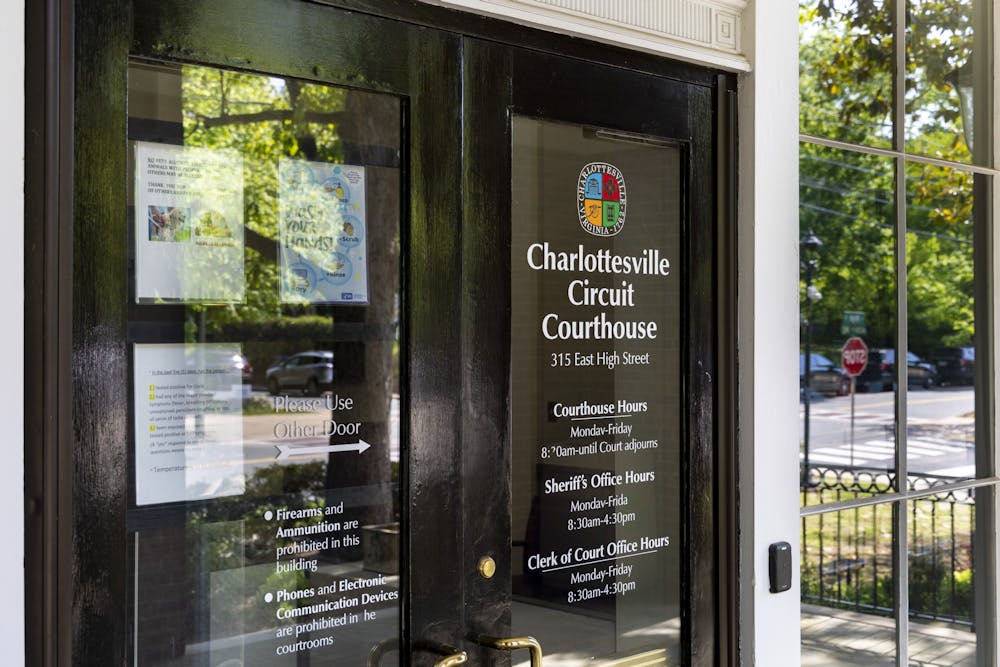Mason Hughes Pickett, more commonly known as Charlottesville’s “sign guy,” was found guilty of assault and battery by Judge Andrew Sneathern in court Thursday morning — his third conviction in under four years, per reporting from The Daily Progress. Pickett was sentenced to 180 days in prison — 160 of which were commuted — for grabbing 18 year-old Piedmont Virginia Community College student Torrance Malone’s arm when she tried to touch a sign he had displayed.
Pickett commonly stations himself outside Bodo’s Bagels on the Corner with hand-painted signs criticizing Democrats and conventionally liberal ideology. Thursday’s trial marks the third time in less than four years that Pickett has been arrested for attacking someone over his signs — one for an incident in August 2019 and another in October 2020 when he hit a University graduate student repeatedly in the head with his sign.
Picket was displaying one of his most recognized signs — painted with ‘LEFTIST PROFESSORS SUCK’ in bright orange — when Malone and her boyfriend approached him April 15. According to the prosecution, Malone told Pickett to “get a life,” to which Pickett allegedly said she was a “slut,” a “herpes infected b—h” and “dressed like a w—e.” Pickett denied the former comment, but admitted he called Malone obscene names.
Following the verbal confrontation, Malone testified that she moved to grab Pickett’s sign to get it out of her way so she could leave the scene. Malone testified that Pickett “dug his fingernails into [her] arm and drug down.” The prosecution showed pictures of fresh scrapes and bruises from where Pickett had squeezed Malone’s arm.
Pickett, however, claimed that Malone and her boyfriend “smelled of alcohol” and repeatedly said that his sign “has to go.” Pickett claimed that he only moved to grab Malone in order to protect the sign, and had no intention of leaving the bruises and scrapes admitted by the prosecution.
At the end of Thursday’s trial, Judge Andrew Sneathern ruled in favor of the prosecution, concluding that Malone had no real intent to steal Pickett’s sign and that Pickett’s force was excessive, even when protecting his property.
During the trial, Assistant Commonwealth Attorney Will Tanner said that Pickett has yet to learn his lesson concerning the use of force.
“This is number three for him,” Tanner told the court. “It seems as though the message is not getting through to Mr. Pickett that he can’t be engaging in this kind of behavior.”
Pickett has said he intends to appeal Sneathern’s verdict and post a $2,500 appeal bond.
This article has been updated to include attribution to The Daily Progress.







